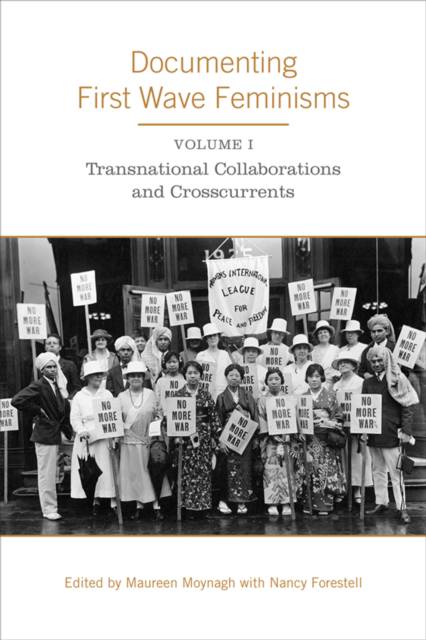
- Retrait gratuit dans votre magasin Club
- 7.000.000 titres dans notre catalogue
- Payer en toute sécurité
- Toujours un magasin près de chez vous
- Retrait gratuit dans votre magasin Club
- 7.000.0000 titres dans notre catalogue
- Payer en toute sécurité
- Toujours un magasin près de chez vous
Documenting First Wave Feminisms
Volume 1: Transnational Collaborations and Crosscurrents
Description
Contemporary feminists are used to juggling many different identities at once, balancing affiliations based on race, nation, class, and sexuality. First-wave feminists also negotiated--or failed to negotiate--similar tensions in their international organizing. Using primary documents dating from the abolitionist movement to the Second World War, Maureen Moynagh and Nancy Forestell investigate the tensions inherent in organizing early transnational feminist movements.
Documenting First Wave Feminisms: Volume 1 provides a historical framework to bring together voices of women both canonical and less well known, from Mary Wollstonecraft to Mabel Dove, who were active in feminist movements in all corners of the world. Suffrage, imperialism, citizenship, sexuality, and moral reform are shown to be key issues in a variety of exchanges across North America, Europe, the global south, and the Pan-Pacific region. This source book is as nuanced as first-wave feminism itself and will prove a valuable resource for studying women's rights in an increasingly globalized world.
Spécifications
Parties prenantes
- Editeur:
Contenu
- Nombre de pages :
- 434
- Langue:
- Anglais
- Collection :
Caractéristiques
- EAN:
- 9781442629288
- Date de parution :
- 16-06-15
- Format:
- Livre broché
- Format numérique:
- Trade paperback (VS)
- Dimensions :
- 152 mm x 229 mm
- Poids :
- 580 g

Les avis
Nous publions uniquement les avis qui respectent les conditions requises. Consultez nos conditions pour les avis.





